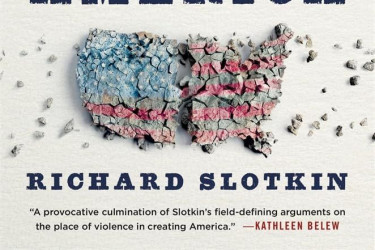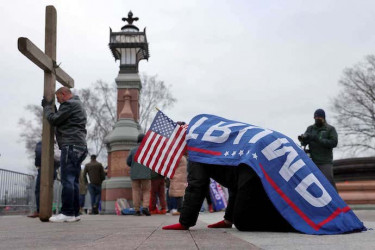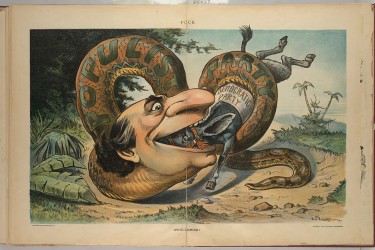JULIEN CROCKETT: In the introduction to your collection, you write that the essays concern “the hold of the dead over the living.” What do you mean?
JILL LEPORE: Many of the essays engage with the question of written constitutionalism in the United States, meaning, in a specific legal way, that we are ruled by the dead. But a lot of the essays also engage broadly in questions about how memory and devotion and obligation to the dead inform decisions that we make. I don’t think it’s an unshakable hold. And sometimes, as in the title essay (from 2019), that hold is an embrace.
Two other thoughts came to mind when I read the phrase “the hold of the dead over the living”: there is the hold or inertia of things continuing to be as they are and seemingly have always been, but there is also history as the story we tell that is used to explain and justify actions. Do those ring true to you too?
I’m working on a long book about the history of attempts to amend the Constitution. And on the one hand, we have a Constitution that has a provision that allows for generativity and invention and adjustment and improvement and alteration and remedy and making amends, and all of these wonderful, beautiful ideas that we associate with the idea of the future. And yet, we live in a world where we can’t actually use that provision because our politics are so overridden with the idea of the past. Consider the Supreme Court’s history-and-tradition test, under which we can’t do anything that doesn’t derive from the past. The week that we’re speaking, the Supreme Court is hearing oral arguments on the question of whether people who have restraining orders against them due to domestic abuse can be prohibited from buying or owning weapons, and the test that the Supreme Court uses is to ask: “Was there an analogous law like that in 1787?” That is plainly nuts. In that sense, we are held hostage by the dead.
Do you find that the way history is practiced in academia has changed because of how history is used in politics?
What people mean when they say the “practice of history” is really quite different, and always changing. The field of academic historical inquiry derives from an 18th-century notion of empiricism that was professionalized in the 19th century and has been called into question in the 21st century by a call for advocacy that rejects the idea of objectivity and even the very notion of empiricism.




















